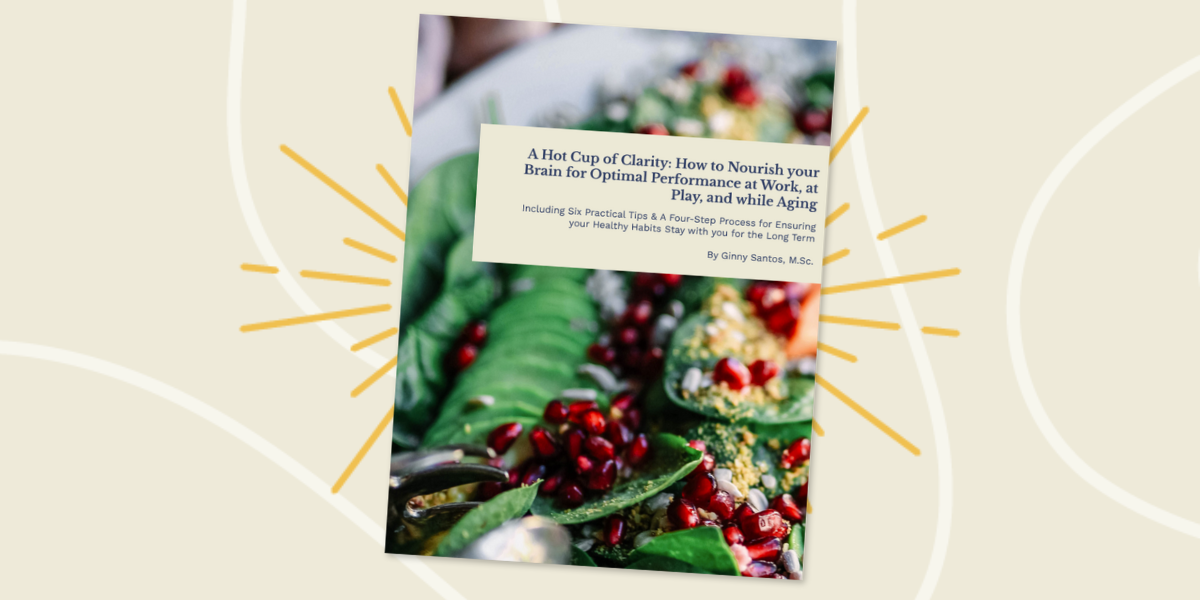It has become very clear to me that there are good and bad innovations. For example, the fact that my car has seat warmers is an amazing innovation. The fact that surgeons can do open-heart surgery is even more amazing. But the fact that corn can be refined into high fructose corn syrup and added to countless snack products to extend shelf life and increase the product’s addictiveness – therefore guaranteeing repeat sales, and all for a very low cost and a very high profit margin – is an innovation that is good for business but bad for people’s health AND especially bad for your brain health.
Unfortunately, there are many innovations in the food industry (both in product development and in marketing strategy) that are nothing but bad for us. As a result, many of us aren’t living the energetic and healthy lives that we could be living. For example, the rates of cognitive decline and neurodegenerative diseases are increasing and affecting us at a younger age than ever before. In 1990, the average person could expect to have good memory and a well functioning brain at least until age 70. Now, doctors are diagnosing more and more people with younger onset dementia in their 40s, 50s and 60s. It is now estimated that less than one per cent of Alzheimer’s cases have a direct genetic cause. The other 99% are linked to lifestyle, the environment, and your immune system’s ability to fend off viruses.
The good news is that you have a lot of power to improve your lifestyle and support your immune system.
From Innovation Consultant to Brain Health Advocate
Because of the work I do, I end up at a lot of conferences, meetings and events with catered meals. At least I did pre-COVID.
In the past, whenever I was asked, “Do you have any food restrictions or allergies we should plan for?” I was proud to say that I ate everything. That’s what I had learned from my dad who had grown up with seven brothers and a widowed mother. “If you want to survive, you have to learn to eat and appreciate whatever is offered to you.” All my life, I had been making food choices based on a completely irrational fear of starvation and a deep need to avoid being a burden to others, rather than making food choices based on an aspiration to live a productive, long and healthy life. Were you also taught to eat everything that’s offered to you and to always finish up the food on your plate, no matter how full you already are? When I realized that living an optimally productive, long, and healthy life was something that I wanted for my whole family, I realized that I needed to change the habits that were deeply ingrained in me.
I had long thought of myself as a healthy person: I only ate fast-food once in a while, I had been vegetarian for most of my twenties, I didn’t smoke, and I usually bought only the healthier kinds of breakfast cereals. I thought that it was perfectly normal to catch a cold every winter, fall and spring (and even summer), that it was perfectly normal to have some acne as an adult, that it was perfectly normal to feel grumpy and sensitive leading up to my menstrual cycle, that it was perfectly normal to rely on coffee to focus and fully concentrate on my work, that it was perfectly normal to want to nap after lunch, and that it was perfectly normal to feel overwhelmed by all my professional and family responsibilities.
Until I discovered that it didn’t have to be that way.
What I thought of as being healthy was only relative to the average North American but not relative to an optimal version of myself.
I was also motivated to make changes to my lifestyle because I wanted to have more energy for my children. You see, when I was 9, my mother died of cancer. Up until then, I did not even think it was possible for a mother to die. Your mother is supposed to always be there for you, or so I thought. Now, I know that only 20 percent of your health and longevity is determined by your genes; the other 80 percent is determined by lifestyle, and lifestyle is greatly influenced by the good and the bad innovations available to us.
What we choose to eat and what is offered to us at work, at conferences and at family or social events, has a direct impact on our performance at work, at play and as we age
As I changed my eating habits, my mental capacity and energy increased. For the first time in my life, I felt that I could do more than what I was already doing, and so I decided to go much deeper into the study of health and nutrition so that I could go beyond helping myself and help my clients too.
The Key Questions Addressed in this E-book
1. What are the optimal brain foods?
2. How might you optimize your eating habits?
The answer to the first question is common-sense, but not always common-practice. That’s why we need to answer the second question. It’s one thing to have knowledge about what foods are optimal for the human body and brain; it’s another thing to develop the skills and habits that allow you to transform your everyday choices.
Our modern lifestyle is a double-edged sword with innovations that can enhance or harm our well-being. While we enjoy the comforts and advancements of today, it’s crucial to recognize and mitigate the negative impacts, particularly on our brain health. By making conscious choices, you can significantly improve your brain health, energy levels, and overall quality of life.
Download our eBook, “A Hot Cup of Clarity: How to Nourish your Brain for Optimal Performance at Work, at Play, and while Aging,” and embark on a journey towards a healthier, more vibrant you.
Ginny Santos MSc. CEO, Well-being Advocate, and Adjunct Professor.







